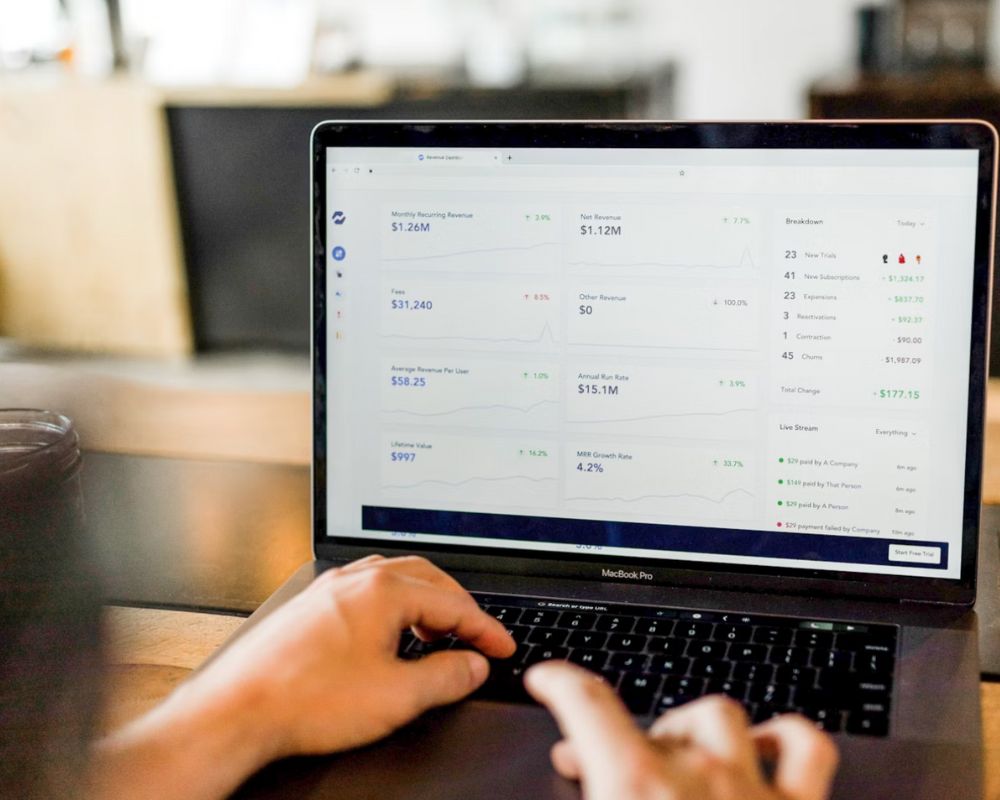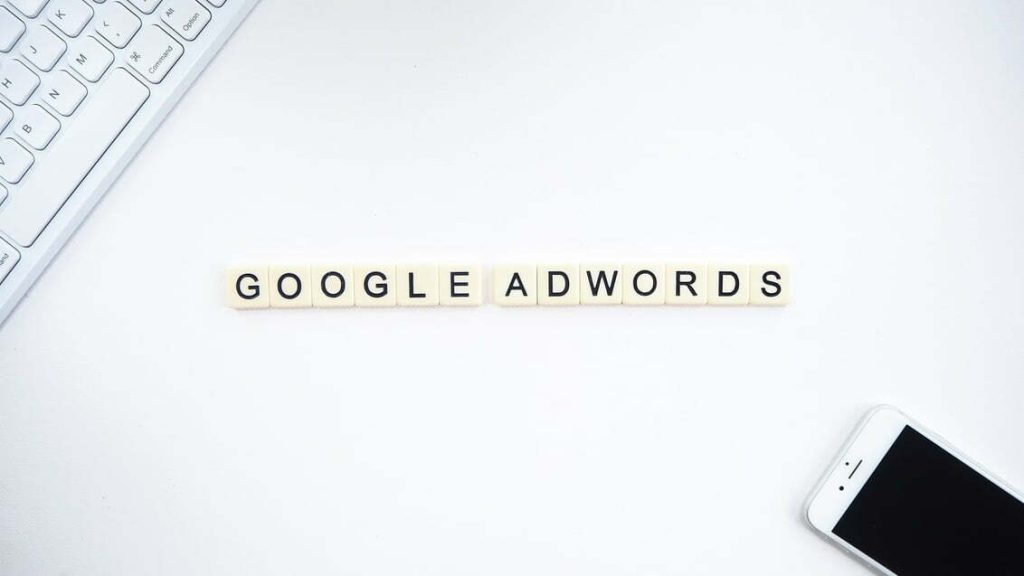Looking to increase leads, grow revenue, and get in front of customers when they’re ready to act? Pay per click (PPC) advertising might be the missing piece. But what is PPC, exactly? And how can it help your business grow in a sustainable, measurable way?
PPC – including platforms like Google Ads – gives you instant visibility, letting you target the right people at the right time. But here’s the catch: even the best-targeted ads won’t perform if your website or landing page isn’t up to scratch.
At Yellowball, a boutique web design and PPC marketing agency in London, we go beyond the ad account. We build high-performing campaigns backed by conversion-focused content and landing page design that turns traffic into action. This guide explores PPC meaning, the difference between SEO and PPC, what makes a PPC campaign work, and why strategic website copy is critical to your success.
What Is PPC?
PPC stands for pay per click – Also known as paid search, this is a model of online advertising where you pay a fee each time someone clicks on your ad. The most well-known platform is Google Ads, but PPC also appears across Bing, LinkedIn, Facebook, Instagram, YouTube, and more.
So, what is PPC advertising in practice? It’s a way of buying targeted traffic to your website rather than earning it organically through SEO. The key advantage is that PPC offers immediate visibility and precise targeting options to reach people actively searching for what you offer.
The Good: Why PPC Works Exceptionally Well for Businesses
PPC is a powerful tool in your digital marketing mix, particularly when you want results quickly or have specific campaigns to push.
1. Instant implementation and visibility
Once your PPC campaign is live, your ads can appear within hours. Unlike SEO, which takes time to gain traction, paid search puts you at the top of search results straight away.
2. Full control over messaging and spend
You set your daily budget, choose your target keywords, craft your message, and determine when and where your ads appear. This flexibility allows you to test and refine your strategy.
3. Highly measurable and data-rich
Every aspect of your PPC campaign is trackable. You can see which keywords drive traffic, which ads perform best, and how to track Google Ads conversions in real time.
4. Aligns with broader marketing strategy
From seasonal sales to product launches, PPC campaigns can be tailored to support your business objectives instantly.
5. Complements SEO
Wondering about the difference between SEO and PPC? SEO (Search Engine Optimisation) focuses on improving your website’s visibility in organic search results over time, building authority and credibility through content, technical performance, and backlinks.
PPC (Pay Per Click), such as Google Ads, places your business at the top of search results instantly, but you pay for each click. SEO is a long-term investment, while PPC delivers quick wins. Together, they form a powerful, complementary strategy for growth.
Discover how to run Google Ads campaigns strategically with expert support from Yellowball, London’s leading web design and online ads agency.
The Bad: What to Watch Out For
While PPC has clear benefits, it isn’t a silver bullet. Many businesses fall into the trap of launching ads without considering the full picture – especially the website experience. Here’s why that matters.
1. It won’t fix a bad website
What is a PPC campaign without conversions? Just a stream of expensive traffic. If your landing pages are poorly designed or fail to align with the ad, your bounce rates will be high and your ROI will plummet. As a result, it’s essential to know how to create a PPC landing page that converts.
2. Low Ad Rank = higher costs and poorer results
Google Ads uses a metric called Quality Score to decide where and how your ads appear. Landing Page Experience is a key factor in this, so if your site isn’t up to scratch, you’ll have to pay more for each click, and Google will limit your visibility. It’s just one way SEO is essential to good web design and strong PPC campaigns.
3. Your budget can disappear fast
Without careful monitoring, PPC campaigns can quickly eat through your budget. If your ads attract the wrong audience or your site doesn’t convert, the clicks mean little.
4. Conversion rate is everything
Getting users to click is just the start. If they don’t take action on your site – book, buy, fill in a form – then your campaign is missing the mark.
Why Website Copy & Landing Pages Matter
Here’s the heart of it: effective PPC requires more than just clever ad targeting. If your website or landing page doesn’t deliver what users expect, your performance will suffer – and your budget will too.
Landing Page Experience is one of Google’s core metrics for ranking ads, so SEO-friendly web design is critical to achieving a good ROI on PPC ads. That means your content, layout, mobile-friendliness, and page load speed directly affect your cost per click and visibility.
The copy itself is critical. Your landing page should:
- Match the tone, keywords and intent of the ad
- Make the value proposition clear within seconds
- Be easy to scan and compelling enough to act
- Be structured for conversion with CTAs, trust markers, and benefits
At Yellowball, we understand what makes landing pages convert. Whether you’re building from scratch or undergoing a website redesign, we take a conversion-first approach grounded in data, brand alignment and user experience.
If you’re considering a website overhaul or content refresh, we recommend reviewing your site from a PPC optimisation perspective. Without it, even the best campaigns won’t deliver ROI.
Understanding Keyword Strategy in PPC
Before launching a PPC campaign, understanding your keyword strategy is essential. Keywords dictate when and where your ads appear – but it’s not just about search volume, it’s also about user intent.
There are three main keyword match types:
- Broad match – casts a wide net, less precise
- Phrase match – targets searches with more intent
- Exact match – highly targeted, usually with better conversion rates
To get results, you need to:
- Target high-intent, relevant keywords that match your goals
- Regularly review the Search Terms Report to eliminate irrelevant clicks
- Use negative keywords to filter out poor-fit queries
- Continuously test and refine based on performance data
At Yellowball, we use advanced PPC competitor analysis and intent mapping to build keyword strategies that reduce waste and increase ROI. The right keyword targeting improves everything from Ad Rank to conversion rate – and that starts with strategy.
What Is Ad Rank and Why It Matters
Ad Rank is Google’s way of determining where your ad appears – and how much you pay per click. It’s not just about your bid. Google wants to reward relevance and user experience.
Ad Rank = Bid amount + Quality Score
Quality Score is based on:
- Expected clickthrough rate (CTR)
- Ad relevance
- Landing page experience
If your Ad Rank is low, you’ll either:
- Pay more for each click
- Be outranked by competitors with better scores
- Miss out on visibility altogether
Improving Ad Rank means focusing on the full journey:
- Write relevant, engaging ad copy that matches search intent
- Build fast-loading, mobile-friendly landing pages
- Align ad content with page headlines and messaging
At Yellowball, we audit every step of the campaign journey to increase Quality Score and maximise return. Whether you’re trying to understand how much Google Ads cost or why your visibility is poor, Ad Rank is where to start.
Common Mistakes in PPC Campaigns
Even experienced businesses can fall into costly PPC traps. Avoiding these mistakes can dramatically improve your ad performance and ROI.
Frequent PPC mistakes include:
- Bidding on irrelevant or overly broad keywords
This attracts users who aren’t actually interested in your product or service, leading to wasted clicks and poor conversion rates. Broad targeting might boost traffic, but it dilutes intent. - Writing vague or misleading ad copy
If your ad promises something your landing page doesn’t deliver, users will bounce quickly. Clear, relevant messaging ensures you attract the right audience with the right expectations. - Neglecting mobile optimisation
With over half of PPC traffic coming from mobile, a slow-loading or unresponsive page will frustrate users and tank your conversion rate. Google also penalises poor mobile experiences. - Driving traffic to generic pages, not tailored landing pages
Sending ad traffic to your homepage or an all-purpose page makes it harder for users to find what they clicked for. A focused, purpose-built landing page guides them to action. - Failing to use negative keywords
Without negative keywords, your ads may show up in unrelated searches, draining budget on irrelevant clicks. Adding them helps you refine your targeting and improve efficiency.
Another common oversight? Not testing. A/B testing your headlines, calls to action, images and layout helps uncover what drives real engagement.
Also consider:
- Conversion tracking – are you measuring the right actions?
- Budget control – are you spending smart, or just spending?
- Ad fatigue – when was the last time you refreshed your creative?
At Yellowball, we take a proactive approach to campaign management. We don’t just spot issues – we prevent them, applying strategic oversight and continual optimisation from day one.
PPC and the Customer Journey
It’s not just about what happens offsite. PPC clicks lead users to your site – but what happens next determines whether they convert or click away.
Key areas to consider include:
- User intent: Does the landing page reflect what users were searching for?
- Page flow: Is the journey logical and persuasive?
- Mobile experience: With over half of PPC traffic coming from mobile, responsiveness is essential.
- Trust: Are your credentials, testimonials and value clear?
A well-crafted landing page is not just a conversion tool – it’s a brand experience.
Explore our guide on how to do PPC competitor analysis to see how other businesses in your space are approaching the customer journey.
How Much Are Google Ads?
One of the most common questions we hear is: how much do Google Ads cost?
The short answer: it depends. Google Ads operates on a bidding system, and costs vary based on:
- Keyword competition
- Industry benchmarks
- Your Ad Rank (which is influenced by your landing page!)
- Time of day, device, and location
Some businesses spend hundreds per month, others tens of thousands. What’s important is not how much you spend, but how well your spend is managed. If you’re wondering, are Google Ads worth it? – the answer lies in conversion tracking and strategic optimisation.
Learn more about Google’s Performance Planner to make sure your budget goes further.
Get Pay-Per Click Expertise That Drives Results
Paid search advertising offers a direct route to reaching motivated customers, but success hinges on having the right foundations in place. At Yellowball, we partner closely with our clients to ensure every campaign is:
- Built on clear objectives
- Matched with compelling website copy and user journeys
- Continuously optimised for cost efficiency and ROI
At our PPC agency in London, we don’t just set up ads. We look at the whole picture – from PPC campaign structure and keyword strategy to landing page performance and brand alignment.
Need to improve conversion rates? Want to get more clicks and make more sales? Explore our Paid Search services or get in touch with our team today and let’s get the ball rolling!




